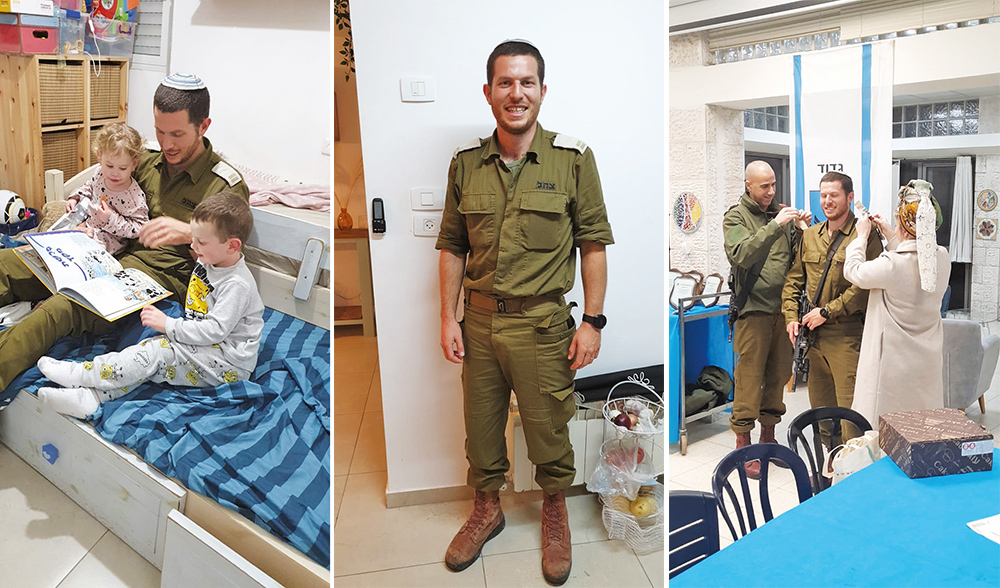
Teddy Weinberger’s son Elie officially became a company commander in the IDF Reserves at a graduation ceremony on February 9. Below are his translated reflections.
A lot of people ask me what made me volunteer for a period of three months for a company commander’s course. The difficulty is exacerbated in that I am married, have two children, and I recently started a new job as an 11th-grade
educator.
Reserve service has never been popular. According to Israel’s Central Bureau of Statistics (as of 2016), while 25.1% of the population enlisted in the army, only 1.5% of the population are active in the reserves—though it is service that is mandatory by law. There are many reasons, some of them justified, to get out of reserve service, but here I will try to focus on the beauty of the reservists who leave everything behind—including family, work and more—to protect the homeland.
So why do I reserve duty? And why did I sign up for the company commander’s course? I’ll start with a related question: Why did I become an officer toward the end of my three years of mandatory service (which also required me to extend that service by 18 months)? The simple answer is because I wanted to contribute more. I could have stayed where I was, a comfortable place in one of the IDF’s elite units, but I wanted to lead: to lead soldiers, to lead people, and in general to try to do good in my small and limited framework as a junior officer to about 30 soldiers. Similarly, I say that the main reason why I enlisted in the company commander’s course is to continue to do good and to create a model society, now not for 30 soldiers but for close to 100.
For the most part, officers in the army move on and advance along the chain of command for reasons of protecting the homeland, and they see this as a supreme value. I completely believe in this, but what attracted me to do more service is a desire to protect the soldier and to do good within the company framework. Unfortunately reservists, who sacrifice themselves for the sake of the country, are not appreciated enough, and so my goal is to give my company an understanding that they are appreciated and loved as well as to provide the soldiers with a community that goes beyond the ultimate goal (defending the homeland) for which we gathered. There is also an additional goal here: to do good in whatever framework you are in. Of course, this rationale can accompany us everywhere and in every setting—because this is how we create a better society; if every person, whether in the workplace, with family or with friends, acts positively and does what they can, that is how our world becomes better.
What I tell myself regarding the company commander’s course is also what I hope to convey to the people I command: We all need to try to do good wherever we are, to cause people around us to feel more comfortable, and to appreciate them. I will look into the eyes of my soldiers and tell them: “You are doing a great thing! You are protecting our homeland for which we have waited 2,000 years.We don’t have the privilege of staying home, and even if you are only 1.5 % of the population and you don’t get enough credit, I as your company commander appreciate and love you. And I will do everything to promote your physical well-being and to see to it that your service will be meaningful and even fun in this activity that we call the military reserves. Thank you for your work and for protecting the people of Israel and the Land of Israel—because we have no other Land!”
By Captain Elie Weinberger










